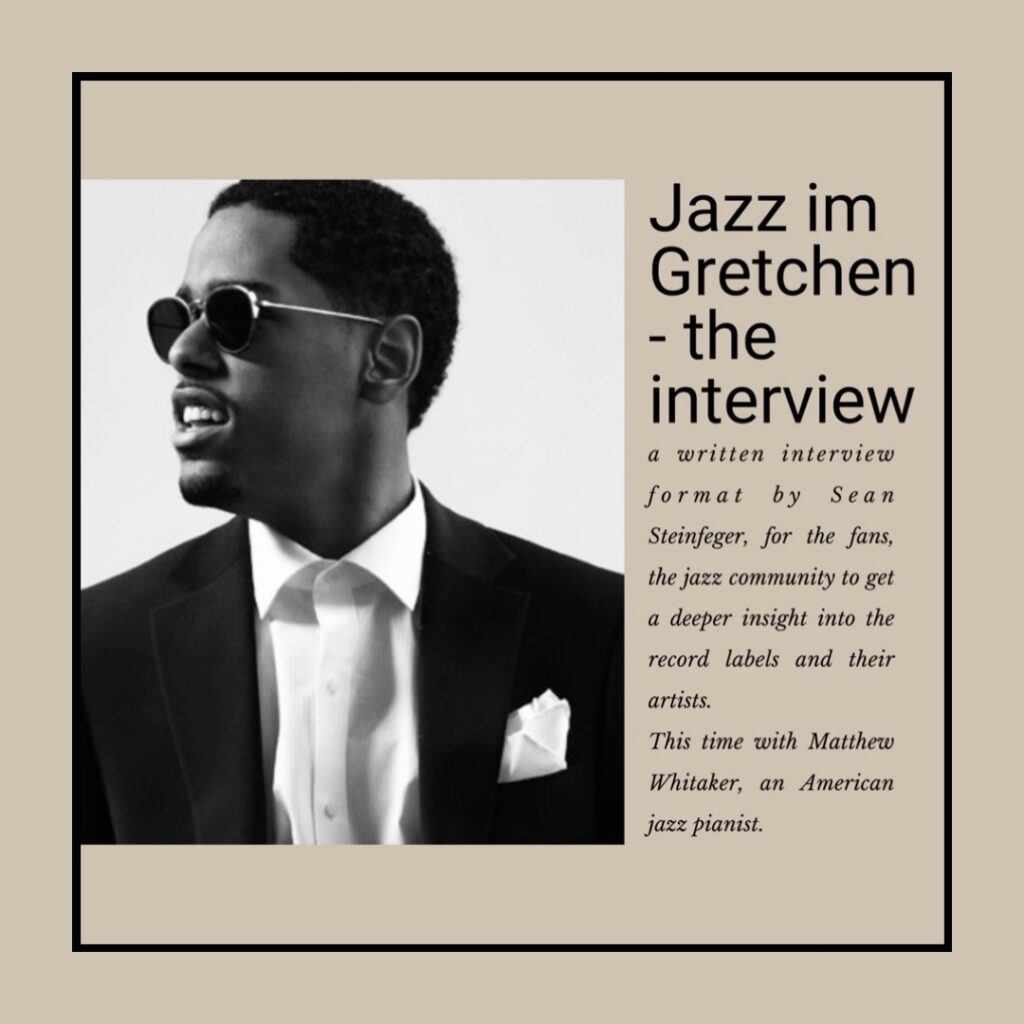Sean Steinfeger w/ Matthew Whitaker

Did your parents have a record collection when you grew up and what was the first album that had an impact on you?
You could say that my dad had a big album collection. He’s always had a turntable and he would play his old albums for me. The first album that impacted me was „Spiral“ by Dr. Lonnie Smith.
What does „Jazz“ mean to you?
To me jazz means freedom. Freedom to explore and create based on what I’m feeling or what’s going on around me.
In 1969 Miles Davis already said „Jazz is an Uncle Tom word“ as it was a word that has been given by white people to describe this black music genre—do we need another word for „Jazz“ now? What are your thoughts on this?
Jazz has evolved a lot since 1969 and many musicians are taking the tradition of Jazz and interpreting it through their own lens. Miles himself did that. Jazz is innovation and emotion. No, I don’t think we need another word for Jazz, we just need it to be accepted in all its current forms. In the end, it is music, we use terms to help us communicate in our society.
If you’d have to pick 3 of your most influential musicians, who would it be?
If I had to choose three musicians who have influenced me, I would say Dr. Lonnie Smith, Oscar Peterson, and Jordan Rudess.
How did you get into playing drums next to the piano?
I had a toy kit at home. I would also visit the music store and would always go to the drums. When I was 6 or 7, I convinced my parents to get me a real kit. I was really into the drums when I was younger. Every time I would get home from school, that was the first instrument I would play.
Where do you draw your influences from when you compose new songs?
It depends, sometimes the melody just comes to me and I build around that, like my composition, “Stop Fighting”. Other times is based on what’s going on around me like my composition, “It Will be Okay”, which I composed during the pandemic. Or, recently I heard the band clapping to a beat and I thought of a song around that. Sometimes during workshops, I ask the audience to give me a melody and we compose a song around it.
As a musician who is doing both—writing your own compositions and reinterpretating classics: if you could only record one last song: what would you choose and why?
This is a great question. If I had to record one last song, I would probably compose an original that would make people feel good and find hope in the future.
Name 3 living musicians that you would love to work with?
That’s a tough question, I guess I would say, Stevie Wonder, Jordan Rudess and Take 6.
Have you ever considered of working with vocalists or do you prefer concentrating on making instrumental music in the future
I love to work with vocalists. I recently was part of a musical as musical director and pianist. I got to work with singers by teaching them their parts and accompanying them. I also work a lot with choirs the same way.
What „new artists“ are you currently listening to?
I would say Samara Joy is a new artist I enjoy listening to.
How is touring as a blind musician? Does every country/continent feels different?
Touring gives me the opportunity to experience countries in a way I cannot get by learning about them in books. I experience new countries and cultures, through their people, language, food, and of course, music.
What have you already heard about Club Gretchen, have you ever played in Berlin yet and what can we expect from your upcoming show on November 6?
I was in Berlin a few years ago and I really enjoyed it. I’m looking forward to performing at Club Gretchen. I’ve been checking online and noticed how it has a versatile calendar of guests. Me and my band are so excited to perform there and share some joy.

